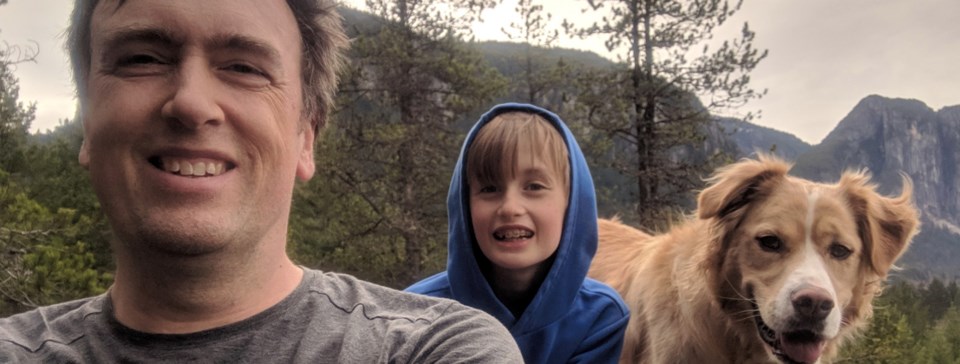Michael Coyle has hundreds of urban and wilderness searches to his credit in the 20 years since he was diagnosed with polycystic kidney disease (PKD).
But now, as his energy levels are flagging and doctors are recommending a kidney transplant, the Coquitlam Search and Rescue volunteer is reaching out to the community for help finding a donor.
“I thought ‘I’d better get on this,’” said Coyle, who has been told he will need a kidney in a year to 18 months to regain his energy and avoid dialysis.
Coyle, who is the media spokesperson for Coquitlam SAR and the developer of BC Silver Alert for locating people with dementia who've gone missing, recently posted information about his health issues on Facebook and Twitter.
It wasn’t easy, Coyle said, to lay it all out for the public on social media, equating his reluctance to the way a hiker might feel calling for help when lost. But sharing his vulnerability and his need has been worth it because several people — including complete strangers — have volunteered to be tested and more people know about PKD.
“It’s hard to admit, I can’t do this,” Coyle told the Tri-City News this week.
But the urgency has been pressed home by his doctors, who have been monitoring his kidney function over the years. When his recent bloodwork showed his kidneys were close to failing, Coyle knew he had to act.
“[The doctors] were pretty clear as well; the more candidates there are, the better chance they are to pick the best match,” Coyle said.
The response in recent days has been gratifying, says Coyle, who has an eight-year-old son, Eamon, a partner, Sylvia, and a dog named Curie.
“I’m surprised and honoured — there’s almost no words to describe when people come forward and say they will be tested.”
Potential donors will have to go through a battery of tests and while they may not be a match for Coyle, they could help someone else.
“One guy said I’m being tested for my niece’s child. If I’m not a match, I’ll test for you… People are saying, 'Where do I sign up? Where do I call?'”
While the process of finding a donor will take some time, Coyle is keeping as active as his kidneys will let him. He has had to step back from his role as a searcher, helping to manage searches instead, but is still working on various projects to enhance searches via technology, including a tracking system for searchers and a cellular network that can be deployed when cell towers or fibre optic cables are burned in a fire.
Working on his IT business from home allows him to walk his son to and from school, and not having to commute daily saves energy. His partner picks up a lot of the slack at home in the evening, when Coyle finds his energy draining away.
Still, the active skier, hiker and search expert is not letting PKD stop his activities, and if more people know about the disease or offer to be tested for a kidney donation, his public airing of his circumstances will have paid off.
“I certainly don’t feel hard done by,” Coyle says, “The kidney thing is just the luck of the draw.”



